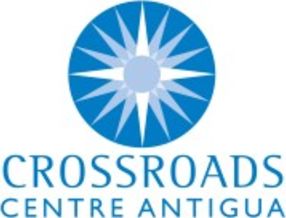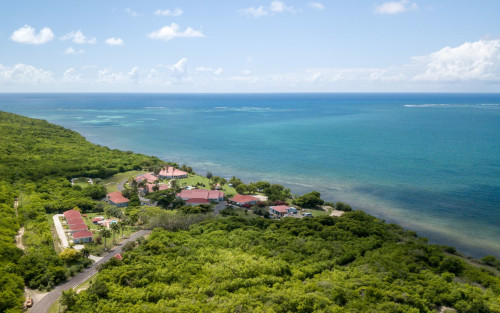
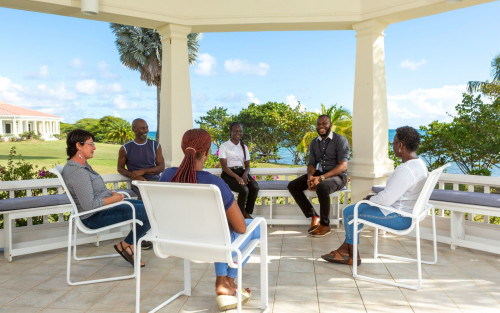
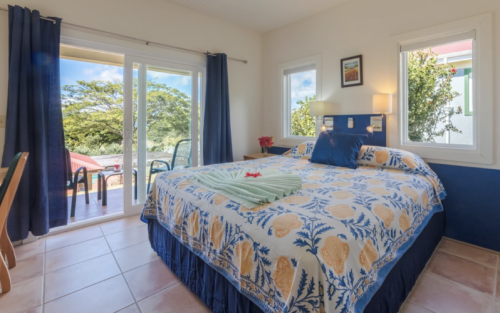



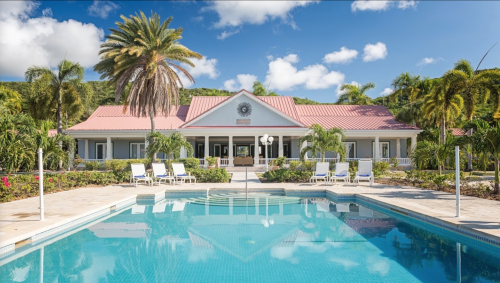
Crossroads Centre Antigua
Verified Center
This provider's information has been quality-checked by Recovery.com's Research Team for accuracy and completeness, including center verification through appropriate third-party organizations.
Treatment Focus
This center treats substance use disorders and co-occurring mental health conditions. Your treatment plan addresses each condition at once with personalized, compassionate care for comprehensive healing.
Primary Level of Care
Offering intensive care with 24/7 monitoring, residential treatment is typically 30 days and can cover multiple levels of care. Length can range from 14 to 90 days typically.
Treatment Focus
This center treats substance use disorders and co-occurring mental health conditions. Your treatment plan addresses each condition at once with personalized, compassionate care for comprehensive healing.
Primary Level of Care
Offering intensive care with 24/7 monitoring, residential treatment is typically 30 days and can cover multiple levels of care. Length can range from 14 to 90 days typically.
Private Pay
You pay directly for treatment out of pocket. This approach can offer enhanced privacy and flexibility, without involving insurance. Exact costs vary based on program and length of stay. Contact the center for specific details.
Crossroads Centre Antigua
Crossroads Centre Antigua
About Crossroads Centre Antigua
Crossroads Centre Antigua is a CARF accredited addiction treatment facility on the idyllic island of St. John’s. Through their medically supervised detox and residential treatment programs, Crossroads Antigua addresses addiction, trauma, and clients’ physical health. Crossroads was founded in 1998 by music legend Eric Clapton, who struggled with addiction himself. He aimed to “create a centre of the highest caliber to treat people throughout the world.” Crossroads is an accredited centre of healing, providing addiction services to people all across the globe. There are no visa requirements for traveling to Crossroads Centre Antigua.
A Restorative Environment with Qualified Staff
Crossroads Centre Antigua begins treatment with thorough assessments and detox, as needed. Their medical director and nursing staff remain on-site 24/7. They provide evaluations for physical, nutritional, biopsychosocial, psychiatric, psychological, and spiritual health. Crossroads Centre Antigua’s staff continuously collaborates to assess individual needs and treatment goals. Their treatment practices take a holistic and 12-Step approach, ultimately tailored to each client’s individual needs. Yoga, meditation, and fitness therapies help connect the mind, body, and spirit for a comprehensive healing experience. Clients will also have access to spiritual guidance during their stay.
Crossroads Centre Antigua’s restorative facility offers shared and private rooms, bespoke amenities, and ocean views. They have a private pool and easy beach access for yoga, swimming, and relaxation. Limited daily phone access allows clients to connect with loved ones and other personal matters.
Comprehensive Evidence-Based and Holistic Treatment
Crossroads Centre Antigua uses evidence-based therapies in 1:1, group, and family settings. These include cognitive behavioral therapy (CBT), dialectical behavioral therapy (DBT), eye movement desensitization and reprocessing (EMDR), mindfulness, and motivational interviewing techniques. Their holistic therapies include exercise with a personal trainer, the option of acupuncture therapy, art therapy, and volunteering opportunities outside of their treatment centre. Crossroads Centre Antigua’s qualified nutritionist meets with clients to assess their diet and pass along any restrictions or preferences to their team of chefs.
Tailored Programs and Intensive Family Involvement
Crossroads Centre Antigua’s residential programs include 30, 42, 56, and 90-day programs, plus week-by-week extended stays and an intensive 5-day family week. They also offer a standalone detox program and 5-day restorative retreats to reconnect with recovery. After residential treatment, clients join alumni chapters and receive aftercare support with a placement plan for continued care.
Crossroads Centre Antigua partners with an insurance advocate to help clients with insurance receive reimbursement for treatment costs, as applicable.
Upcoming Retreats
Crossroads Centre Antigua offers several bespoke retreats to offer support and provide continued care. These include:
•Complimentary Professional Renewal Retreats: Behavioral health professionals can enjoy a complimentary 5-day renewal retreat to relax, rejuvenate, and find support. These take place three times a year, with retreats for men, women, and mixed genders.
•Renewal Retreats: Designed to renew commitments to sobriety, these retreats include therapy, 12-Step meetings, and peer support for clients with 4+ months in active recovery.
•Restore and Connect: Short retreats held throughout the year to help clients briefly pause and restore wellness.
•Annual Alumni Retreats

Highlights from the Center
Highlights
These highlights are provided by and paid for by the center.
Therapeutic Location
On-site Medical Detox
Master's Level Therapists
Center Overview
Treatment Focus
This center treats substance use disorders and co-occurring mental health conditions. Your treatment plan addresses each condition at once with personalized, compassionate care for comprehensive healing.
CARF Accredited
CARF stands for the Commission on Accreditation of Rehabilitation Facilities. It's an independent, non-profit organization that provides accreditation services for a variety of healthcare services. To be accredited means that the program meets their standards for quality, effectiveness, and person-centered care.
Pricing and Program Length
Estimated Center Costs
The cost listed here ($18,600 - $36,600 / 4 weeks), is an estimate of program cost. Center price can vary based on program and length of stay. Contact the center for more information. Recovery.com strives for price transparency so you can make an informed decision.
Luxury rehab centers offer a unique blend of luxurious amenities and high-quality treatment. From private suites to gourmet dining, personal trainers to spa treatments, these facilities provide a high level of comfort and discretion.

Meet Your Care Team

Nicos M. Peraticos
CEO

Jean-Machelle Benn-Dubois
Director of Admissions
PhD International Psychology

Claudine Knox
Lead Therapist
MS Mental Health Counseling

Dr. Sherry Lynch-Yearwood
Medical Doctor
MD, MPH
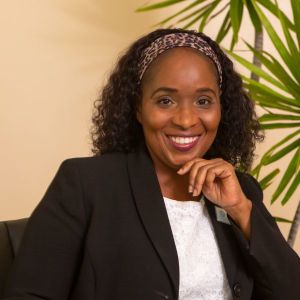
Treasa James
Chief Financial Officer
MA, CPA, CGA
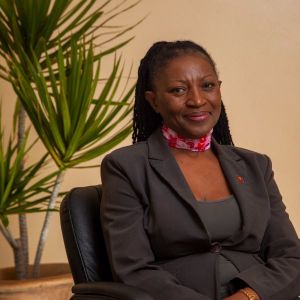
L. Noverly Edwards
Human Resources Director
bachelor’s degrees in Behavioral Sciences and Business Administration
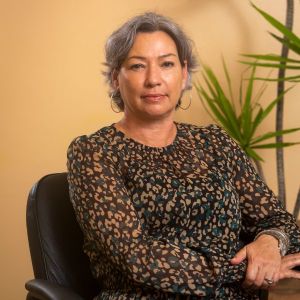
Joanne Gonsalves
Clinical Director
MSW Masters of Social Work
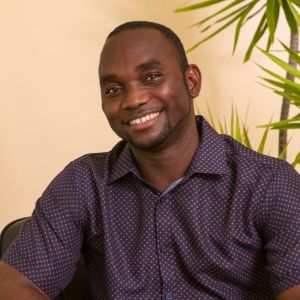
Shane Roberts
Operations Manager
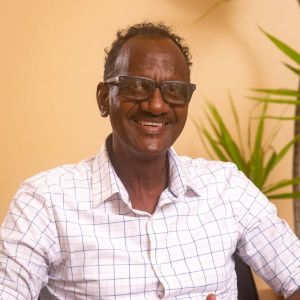
Colin Hodge
Therapist
Registered Addiction Specialist II
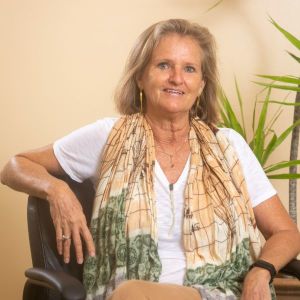
Paula Thomas
Therapist
Bachelor’s Degree Psychology, Master’s Level Registered Addiction Specialist Certification in Alcohol and Drug Abuse Counseling
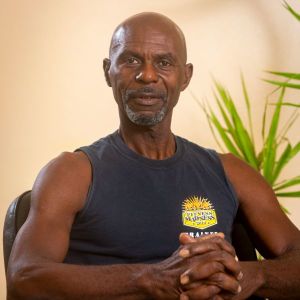
Alexis Edwards
Professional Trainer
Certified Fitness Trainer/Consultant and Facilitator
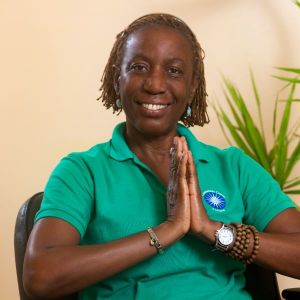
Marleen Askie
Yoga Instructor
Reiki Practitioner Level 2
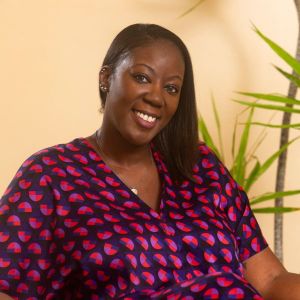
T’Mira Looby
Primary Therapist
Master’s in Counselling for Student Affairs, National Counsellor Certification (NCC)
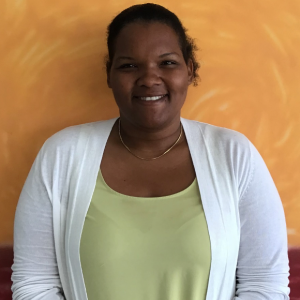
Regina Apparicio
Primary Therapist
MSc, MBPSs
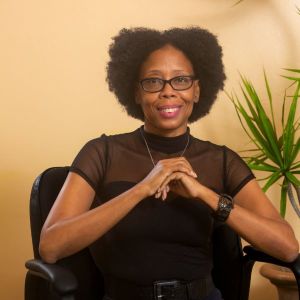
Devra Thomas
Tobacco Treatment Specialist (Elective Program)
Certified Tobacco Treatment Specialist (CTTP), National Certificate in Tobacco Treatment Practice (NCTTP), Masters Level – Registered Addictions Specialist (M-RAS)
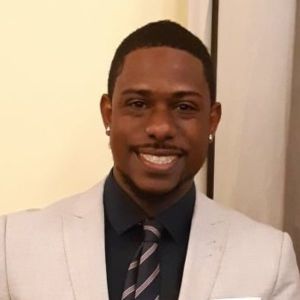
Daryl George
Admission Counselor
Bachelor’s Degree in Psychology
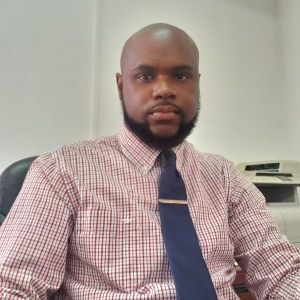
Jamie Saunders
Admission Counselor
BSc for Public Sector Management, Psychology, Sociology
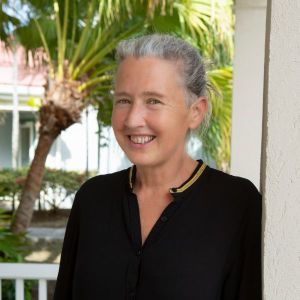
Samantha Quinlan
Marketing And Development Officer




Levels of Care







Your Care Options
Specializations
Alcohol
Using alcohol as a coping mechanism, or drinking excessively throughout the week, signals an alcohol use disorder.
Detox
Detox fully and safely removes toxic substances from the body, allowing the next steps in treatment to begin with a clean slate.
Codependency
Codependency is a pattern of emotional dependence and controlling behavior. It's most common among people with addicted loved ones.
Drug Addiction
Drug addiction is the excessive and repetitive use of substances, despite harmful consequences to a person's life, health, and relationships.
Holistic
A non-medicinal, wellness-focused approach that aims to align the mind, body, and spirit for deep and lasting healing.
Opioids
Opioids produce pain-relief and euphoria, which can lead to addiction. This class of drugs includes prescribed medication and the illegal drug heroin.
Prescription Drugs
It's possible to abuse any drug, even prescribed ones. If you crave a medication, or regularly take it more than directed, you may have an addiction.
Who We Treat
Young Adults
Emerging adults ages 18-25 receive treatment catered to the unique challenges of early adulthood, like college, risky behaviors, and vocational struggles.
Midlife Adults
For adults ages 40+, treatment shifts to focus on the unique challenges, blocks, and risk factors of their age group, and unites peers in a similar community.
Approaches
Family Involvement
Providers involve family in the treatment of their loved one through family therapy, visits, or both–because addiction is a family disease.
Holistic
A non-medicinal, wellness-focused approach that aims to align the mind, body, and spirit for deep and lasting healing.
Personalized Treatment
The specific needs, histories, and conditions of individual patients receive personalized, highly relevant care throughout their recovery journey.
Twelve Step
Incorporating spirituality, community, and responsibility, 12-Step philosophies prioritize the guidance of a Higher Power and a continuation of 12-Step practices.
Wellness
Wellness philosophies focus on the physical, mental, and spiritual wellness of each patient, helping them restore purpose with natural remedies.
Therapies
1-on-1 Counseling
Patient and therapist meet 1-on-1 to work through difficult emotions and behavioral challenges in a personal, private setting.
Meditation & Mindfulness
A practiced state of mind that brings patients to the present. It allows them to become fully aware of themselves, their feelings, and the present moment.
Online Therapy
Patients can connect with a therapist via videochat, messaging, email, or phone. Remote therapy makes treatment more accessible.
Mindfulness Therapy
This ancient practice can be mental, emotional, and even spiritual. In meditation, you focus your attention on the present moment without judgement.
Experiential Therapy
With this approach, patients heal by doing. Therapists help patients process difficult emotions to speak, using guided activities like art or dance.
Eye Movement Therapy (EMDR)
Lateral, guided eye movements help reduce the emotional reactions of retelling and reprocessing trauma, allowing intense feelings to dissipate.
Family Therapy
Family therapy addresses group dynamics within a family system, with a focus on improving communication and interrupting unhealthy relationship patterns.
Conditions We Treat
Anxiety
Anxiety is a common mental health condition that can include excessive worry, panic attacks, physical tension, and increased blood pressure.
Chronic Pain Management
Long-term physical pain can have an affect on mental health. Without support, it can also impact your daily life and even lead to addiction.
Codependency
Codependency is a pattern of emotional dependence and controlling behavior. It's most common among people with addicted loved ones.
Depression
Symptoms of depression may include fatigue, a sense of numbness, and loss of interest in activities. This condition can range from mild to severe.
Trauma
Some traumatic events are so disturbing that they cause long-term mental health problems. Those ongoing issues can also be referred to as "trauma."
Substances We Treat
Alcohol
Using alcohol as a coping mechanism, or drinking excessively throughout the week, signals an alcohol use disorder.
Benzodiazepines
Benzodiazepines are prescribed to treat anxiety and sleep issues. They are highly habit forming, and their abuse can cause mood changes and poor judgement.
Chronic Relapse
Consistent relapse occurs repeatedly, after partial recovery from addiction. This condition requires long-term treatment.
Co-Occurring Disorders
A person with multiple mental health diagnoses, such as addiction and depression, has co-occurring disorders also called dual diagnosis.
Cocaine
Cocaine is a stimulant with euphoric effects. Agitation, muscle ticks, psychosis, and heart issues are common symptoms of cocaine abuse.
Drug Addiction
Drug addiction is the excessive and repetitive use of substances, despite harmful consequences to a person's life, health, and relationships.
Ecstasy
Ecstasy is a stimulant that causes intense euphoria and heightened awareness. Abuse of this drug can trigger depression, insomnia, and memory problems.
Heroin
Heroin is a highly addictive and illegal opioid. It can cause insomnia, collapsed veins, heart issues, and additional mental health issues.
Languages
Aftercare
Care Designed for Your Needs
Personal Amenities
Amenities
Special Considerations
Flexible technology policies
Centers with flexible technology policies allow professionals to stay in touch with work and give patients a greater sense of connection and normalcy.
Gender-specific groups
Patients in gender-specific groups gain the opportunity to discuss challenges unique to their gender in a comfortable, safe setting conducive to healing.
Activities
Yoga
Yoga is both a physical and spiritual practice. It includes a flow of movement, breathing techniques, and meditation.
Off-Site Activities
Off-Site Amenities
What people are saying
Treatment
5.0
Accommodations
5.0
Food & Nutrition
5.0
Value
5.0
Bill P
Treatment in 2020 • (45 days) • Reviewed 11/30/24
Former Client
•Retired
•Pennsylvania






